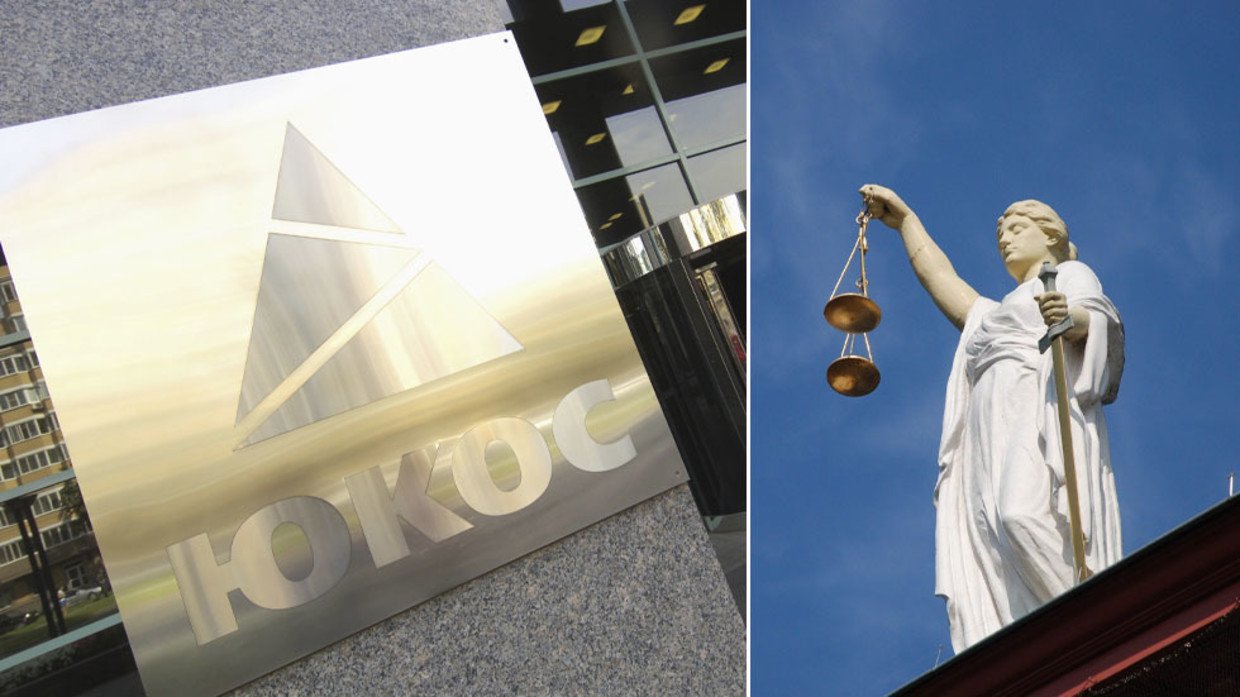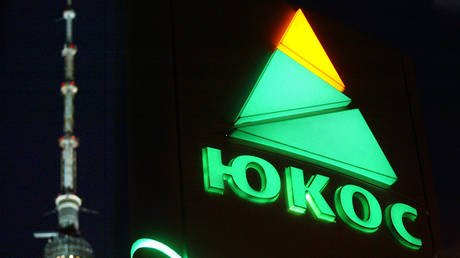The Dutch Supreme Court has rejected Russia's bid to pause enforcement of $50 billion awarded to the former shareholders of Yukos, formerly one of the country’s biggest companies, and nationalized by the state in the 2000s.
Moscow had sought to suspend the collection of the disputed amount. The award is the largest ever in legal history and is around a tenth of Russia’s entire foreign currency reserves.The Russian Ministry of Justice noted that it regards the Supreme Court's decision as “unfounded,” and will continue to defend its “legitimate interests” in the Netherlands and other jurisdictions. The case is also the subject of a legal battle in Washington.
The decision is the latest in a 15-year legal battle between the Kremlin and Yukos shareholders, who claim that the company’s break-up was politically motivated, robbing its owners of their assets. However, Moscow asserts that Yukos was taken into public hands after its owners failed to pay tax arrears.
Also on rt.com Moscow claims win after US court rejects oligarchs' demand for seizure of Russian assets in $50bn Yukos legal battleRussia says that foreign courts have ignored the country’s anti-corruption laws and has disputed international jurisdiction over the case. According to Moscow’s lawyers, the case can only be ruled on by judges in Russia, as the national parliament did not ratify the 1991 Energy Charter Treaty, Yukos’ basis for the claim. The Ministry of Justice insists that the ex-shareholders took possession of the assets “with the help of proven collusion, fictitious bidding, and bribery.” The company was acquired for well below its value in the 1990s.
Speaking to RT, Rob Meijer, Russia’s lead counsel in the Dutch cassation proceedings, noted that they are “quite disappointed” by the Supreme Court’s decision, being of the opinion that the court “used a much too reserved standard” in assessing Russia’s grounds for halting enforcement of the decision.
“Moreover, the Dutch Supreme Court has — in our view wrongly— silently passed by some of our crucial arguments in favor of a suspension,” Meijer said. He also criticized the court for not answering “various crucial questions of Dutch and European Union law,” sufficing with findings that “the Court of Appeal’s decisions were not so clearly wrong or incomprehensible as to justify the requested suspension.”
The lead counsel also noted that the Supreme Court made it “abundantly clear” the latest decision is only preliminary, and the Russian legal team intends to proceed “with full conviction” to get the Yukos award set aside.“This may also lead to, in our opinion, a very promising referral to the EU Court of Justice, as the ECT is also part of the EU law,” he concluded.
The next step in the saga is likely to be in 2021, when Russia expects its next appeal to be heard.
Like this story? Share it with a friend!


